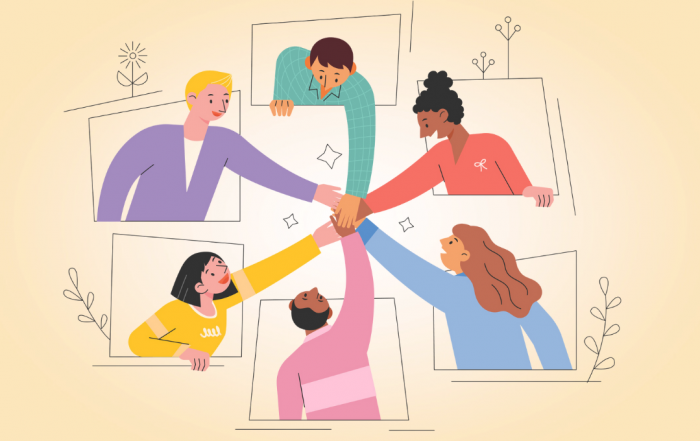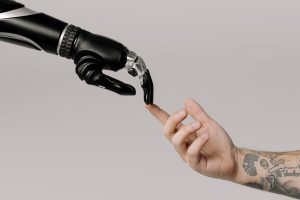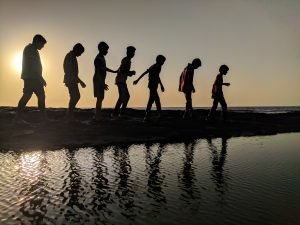The vocabulary of DEI is not new. The movement was born in the 1960s in the USA, rooted in the civil rights movement and the call for tolerance, acceptance, and integration of all into workplaces, schools and communities. In India, the concept gained popularity against the backdrop of Corporate Social Responsibility (CSR) laws that came into place in 2014, followed shortly by the Rights of Persons with Disability Act in 2016. Read together, we realised as a nation that there is much we need to do to include, among other groups, persons with disabilities in our workplaces. There was work to be done in education, hiring, training, retaining, awareness building, infrastructural development, and so much more, and DEI gave us the framework to do it.
The platform of CSR has grown to be an excellent catalyst of collaboration towards the goal of inclusive employment in India. Corporations can now partner with NGOs to ensure the process and the goal of diversity and inclusion, particularly of persons with disabilities, adheres to the principle of “nothing for us without us.” These collaborations allow inclusive workplace policies to be framed, awareness sessions for employees with and without disabilities to be hosted, accessibility audits of infrastructure to be conducted, and so much more.
Of the many organizations taking strong first steps towards inclusive employment through their DEI policies, one stands out from the crowd. Accenture won a National Award for the Empowerment of Persons with Disabilities for the years 2021 and 2022, recognizing their work towards building a barrier-free, inclusive workplace. The award, under the category of ‘Divyangajano Ke Liye Sarvashrestha Niyoktha’ or Outstanding Employer of Persons with Disability comes at the heels of multiple strategies the organization has adopted to advance its commitment to DEI and inclusive employment – a Growth Track program where PwDs receive mentoring, inclusive of a short Indian Sign Language lesson on their website, commitment to using AI for disability inclusion, and their milestone of already employing 6000 PwDs in India.
While the Dublin-headquartered organization is undoubtedly making strides, Indian counterparts are also taking strong steps forward. E-commerce company Flipkart launched eDAB, Ekartians with Different Abilities, in its logistics division, and currently employs over 2100 PwDs. In 2021, a hub in Delhi became the first to be run entirely by PwDs, making 2000 deliveries a day and enjoying a 97% consumer satisfaction rating.3 Similarly, Café Coffee Day made waves as early as 2013, winning the Shell Helen Keller Award from the National Centre for Promotion of Employment for Disabled People (NCPEDP). Their ‘Silent Brewmeister’s’ are persons with speech and hearing impairment who manage cafes all over the country. Another longstanding leader of inclusive employment, Lemon Tree Hotels, now has PwDs constituting 11-12% of its overall workforce.
Over the last few years, technology and retail companies have followed on the heels of these early adopters and have created inclusive employment opportunities, with banking and other financial services fast emerging as potential opportunities. A report published by the World Economic Forum in 2020 shows that organizations leading in diversity and inclusion are 25-36% more likely to outperform on profitability, have a 20% higher rate of innovation, and greater employee retention.4 While these policies provide crucial support structures, diversity and inclusion in practice require everyone’s active participation. It is essential for leaders to role model DEI principles in everyday functioning, reflecting sensitivity and inclusion in their vocabulary, decision making and management. For their part, PwDs in the workplace should advocate for their needs – reasonable accommodations or flexible policies, for example – and reiterate the importance of inclusive design standards.
While anecdotal evidence and case studies of individual companies shine a light on the journey so far, statistics show us the road ahead. Although the RPwD Act of 2016 mandates 4% reservation in public sector organizations for PwDs, many are struggling to fulfil this requirement. Private employers, not bound by these laws, are often farther behind. A report published by Randstad India showed that 65% of companies in the country have policies to promote inclusive employment. However, over 50% of these are multinationals. The study also revealed that hiring of PwDs often happens at the junior to middle levels, with the presence of leadership with disabilities being rather low.5
The evidence speaks loud and clear. The road ahead is only replete with opportunity. A commitment to diversity, equity and inclusion can make organizations more successful. This commitment needs to be driven by cooperation and collaboration. Only through partnerships and a shared commitment to policy, accountability and inclusive culture can the spirit of diversity become mainstream.









